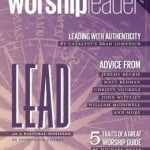Scripture memory doesn’t save; only Jesus can do that. But I’m convinced that the practice of intentionally memorising the Bible is a habit of grace that is worth cultivating for God’s glory, and the good of His people.
To encourage myself and others with this, I’ve interviewed a few people that I respect and look up to, learning from them what they do, what they don’t, how they struggle, how they persevere with the spiritual discipline of scripture memory.
“I have stored up your Word in my heart
That I might not sin against You.”
– Psalm 119:11
Previously:

I first met Angela Robb at a bible conference that our church in Howick hosts each year. Since then, I (and others) have been encouraged by her love for Christ and committed service to His people. I was quite struck by the fact that, prior to a conference with messages from Philippians, Angela had memorised the entire book beforehand!
Angela moved to Rolleston, Canterbury in February 2016 where she is now a member of Rolleston Baptist Church (and before that, Shore Baptist Church in Auckland’s North Shore). With her family she has spent time living in both Canada and China. At the moment she spends her week studying at the Tim Training Course in Christchurch, working part-time on a pig farm, and keeping in contact with friends while seeking God about future plans. She is also working on publishing her first book as a way to encourage others by sharing of God’s faithfulness to her through a season of personal struggle with chronic fatigue.
Angela has kindly offered to share her experiences with memorising Scripture.
1. Share with us a Bible passage you’ve just memorised.
– James 1:1-18 (ESV)
2. What are some passages that you’ve committed to memory?
I’ve memorised several psalms over the years – such as Psalm 1, 8, 19, 23, 25, 84, 90, 103, 121, and half of Psalm 119. I’ve also memorised the books of Ephesians and Philippians, as well as various other passages, such as portions of Jesus’ Sermon on the Mount (Matthew 5-7), God’s call to Abram (Genesis 12:1-3), and some of Paul’s prayers (Col 1:9-14, 2 Thessalonians 1:11-12, etc.). These are all passages that at one time I have been able to recite word for word, though I must admit they do not all come to mind as readily as they used to.
3. What convinced you to start memorising Scripture?
I first started memorising Scripture because it was something we did as children, both in my family and at my church. We often had passages from our church’s Sunday school that my mum and dad would teach to us at home during our family Bible reading (either in the morning with my mum during homeschooling, or in the evening around the dinner table with my dad).
I think I first became personally intentional about it as a teenager, when I came across an article about memorising bigger portions of the Bible and was inspired by the lofty goal of memorising the whole new testament in five years (see link in resources listed below). It started well, but with other life responsibilities needing my attention, I think I was only finishing Ephesians about five years later! The practice I had in learning what worked well (and what didn’t work so well) in memorising Ephesians gave me good experience to apply to future Scripture memory.
4. How do you choose which passages to memorise?
I choose passages for a variety of reasons. For example, I’m currently memorising James 1:1-18 with my pastor’s wife and a few others.
At the moment I am doing a Bible course in which we regularly give talks from assigned passages. I generally try to familiarise myself with the passage beforehand. I find memorising it is a great way to both pay attention to the details in the passage and also have it in mind for ready access it to meditate on whenever I want.
I might choose to memorise several of the prayers of Paul if I’m wanting to grow in the area of prayer (as I read through D. A. Carson’s book “Spiritual Reformation”), or I might choose to memorise a passage related to a series we are going through at Church or Bible study group. For example, I memorised the book of Philippians to prepare for a conference where it was being taught.
I often memorise passages relating to a particular “current event” in my life, such as learning Psalm 90 when I am moving to a new place. 2 Corinthians 5:14-15 is a big help if I am struggling to love a difficult neighbour and need help in remembering that it is Jesus’ love, not my own, that I can rely on. Memorising particular passages to address particular issues is particularly helpful.
5. Do you suggest memorising whole books of the Bible or selected verses? What are the pros/cons?
If you are just starting out, I’d recommend starting with selected verses. These will be less intimidating to memorise, take less time to learn, and are more immediately practical. For example, one of my favourites is 2 Corinthians 9:8 when I am feeling anxious or intimidated about an upcoming situation. However, something to be aware of in memorising smaller passages is that you may miss the bigger meaning of the verses if you are not familiar with the context.
Whole books take a bit of extra time and effort, which can feel quite intimidating if you haven’t memorised much before, and a bit discouraging as progress can feel slow. On the other hand, the challenge can be quite motivating. So think about where you are starting from and plan realistically. I appreciated memorising the book of Ephesians (which did take me a long time, but now seems firmly stuck in my long-term memory) as it covered so many areas. The security of our adoption in Christ, being saved by grace alone, practical instructions for how to live a saved life, insight into the work of Christian ministry and the purpose of the church, how to fight spiritual battles, are just a few of the issues addressed.
If you are just starting to memorise, starting small with selected verses and then working up to longer passages and eventually to whole books would probably be a good idea. Long-term, I think memorising both whole books and selected verses is a good idea – just like we can enjoy both full meals and smaller snacks.
6. What are some of the blessings you’ve experienced in committing Scripture to memory?
I think the biggest blessing is just how immediately available the word of God is when you have it stored up in your heart. It’s more accessible than your phone. You don’t even have to open your eyes or put in headphones. Stored up Scripture means you can think about it as you go for a walk or talk with a friend or drive in the car or fall asleep at night. Verses will often come to mind even when you aren’t intentionally trying to remember them.
For example, I might be about to have a difficult conversation with a friend. As I talk with God about it, He might remind me of Ephesians 4:29, “Let no corrupting talk come out of your mouths, but only such as is good for building up, as fits the occasion, that it may give grace to those who hear.” With that in mind, I might realise I need to go and apologise to my friend because I didn’t speak in the way God wanted me to, or I might be instructed in how I will speak to my friend again in a way that is more honouring to Him. God’s Word is incredibly powerful and you could say that the more we have memorised, the more He has to work with in bringing various verses to mind at appropriate times.
I also find that the actual discipline of Scripture memory gives me a particularly good opportunity to observe the details of a text, to notice particular words or phrases, and to meditate on it in more depth, letting it correct my thinking and direct the way I live. It takes mental effort and a good amount of perseverance, but it is definitely worth it.
7. OK – walk us through your step-by-step method of memorising Scripture.
The main way I learn a passage is simply by reading and reciting it. Here’s how I do it:
- Read through the whole passage aloud (to get a general grasp of the main flow and message).
- Choose a smaller section to work on for this occasion and read aloud.
- Read the first verse (or part of a verse) aloud several times.
- Try to recite it while looking away from the page (check the page again if stuck).
- Repeat reading and reciting aloud until reciting easily and accurately (at least three times in a row without looking and without a mistake).
- Move on to learn the next line in the same way once the first line is comfortable.
- When second line is easy and accurate, recite both together until comfortable.
- Continue for each line (learning individually and then reciting altogether) until finished either the allotted time or the allotted verses for that occasion.
- Move on to other activities for the day, but try to practice them when opportunities are available (washing dishes, driving, brushing teeth, falling asleep, etc).
- At the next set aside occasion read the whole passage aloud, review previously learned verses, and then work on the next section of the passage as you did for the first, reciting them altogether at the end before finishing.
Keep reviewing your new verses if you want to keep them in your mind. However, if it does get rusty, you can simply return to your original memorising method and relearn them. It will be much quicker the second time round.
8. What are some practical tips you can share that can help us be more successful with Scripture memory?
- Keep it simple. If all you do is just read and recite aloud (as described above), it should be quite effective and will help you avoid overcomplicating the process. Starting simply makes it easier to simply start.
- If a passage contains a list, sometimes I will come up with acronyms to make sure I don’t leave something out or miss the order. For example, for the forces that we fight against in Ephesians 6:12, I remember RAPS – the Rulers, Authorities, cosmic Powers and Spiritual forces of evil in the heavenly places. Find acronyms that are memorable for you, but don’t stress over them. Just use them as needed.
- Make up a tune and sing the words you are learning (often you can find the verses already set to music by others – try searching online if you have the time).
- Print the verses out and stick them where you’ll see them often- like on the bathroom mirror or next to the kitchen window or by a light switch.
- Write the passage out by hand – copy it as you first learn it, then write it from memory and compare with the passage afterwards to check for accuracy.
- Find a friend to who is willing to check your progress (or even memorise with you). This helps with overcoming both pride and discouragement.
- Take time to think about what you are memorising. What is God saying in these words?
- Use actions to help you remember the words.
- Move while you memorise – jumping, skipping, walking, jogging, etc. This works best for reviewing rather than reading (though you can keep a verse card or Bible nearby or in hand and check it as you go).
- Review your verses while doing everyday activities – brushing your teeth, driving (safely!), or falling asleep.
9. Any other words of encouragement for those of us having a go?
- Expect it to be hard. Scripture memory is not only mental exercise, but a spiritual battle. Be prepared to put in committed effort. It will take self-control on your part – but we know that self-control is a fruit of the Spirit (Galatians 5:22-23), so we can trust God to grow this good fruit in us, even as we memorise. The discipline will make you stronger and it will get easier over time.
- Ultimately, the goal is for God’s Word to dwell richly in our hearts and transform our lives. Don’t simply store up arsenal, but use these weapons for warfare. As you memorise, pray that God will cause his Word to work powerfully and grow us in holiness. Pray that we won’t get puffed up with head knowledge, but that we will be humbled as He touches our hearts.
- Finally, keep the goal in mind. Jesus persevered for the joy set before him (Hebrews 12:2), and it is helpful for us to do the same in whatever hard thing we undertake for His sake. Remind yourself of the reasons for practising this discipline – for God’s Word to dwell richly in your heart (Col 3:16), to wash you clean (Eph 5:25-27), to keep you from sin (Psalm 119:11), to teach, reprove, correct, train in righteousness, complete, and equip you (2 Timothy 3:16-17). Ask God for help in memorising His Word, and do it for your holiness, the good of others, and the glory of His name.
Some suggestions for further reading and listening:
Why memorise?
- http://www.desiringgod.org/articles/why-memorize-scripture
- http://www.desiringgod.org/articles/five-reasons-to-memorize-scripture
- http://www.desiringgod.org/interviews/bible-memory-as-ministry-to-others
- http://www.desiringgod.org/sermons/if-my-words-abide-in-you–2
- http://www.desiringgod.org/blog/posts/ten-reasons-to-memorize-big-chunks-of-the-bible
How to memorise:
- http://www.aholyexperience.com/2010/11/time-to-return-to-your-first-love-make-a-commitment-booklet/
- An incredibly helpful, detailed, and practical resource for extended memorisation: http://www.fbcdurham.org/wp-content/uploads/2015/07/Scripture-Memory-Booklet-for-Publication-Website-Layout.pdf
- You can memorise the new testament (a 5 year plan) http://www.thebible.net/biblicaltheism/0402memorizent.htm
Scripture songs:
- Steve Green Hide ‘em in Your Heart http://stevegreenministries.org/product/hide-the-word/
- GT and the Halo Express (songs set in a story context) https://www.gthalo.com
- Seeds Family Worship http://www.seedsfamilyworship.com





Loved this, William! So inspiring and practical! I’m taking it on board!
Blessings to you and your beautiful family…